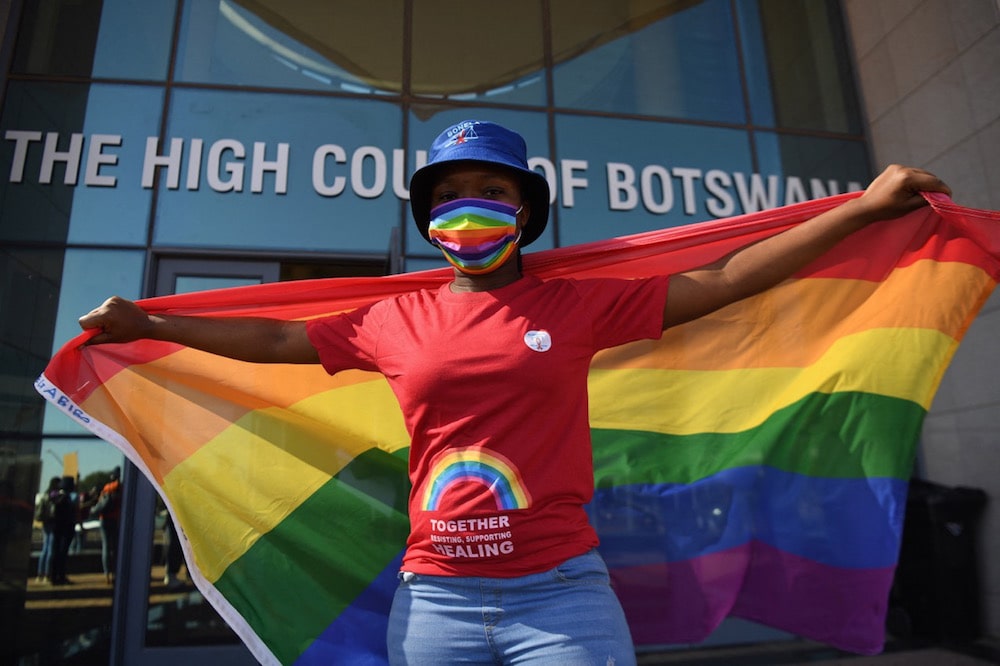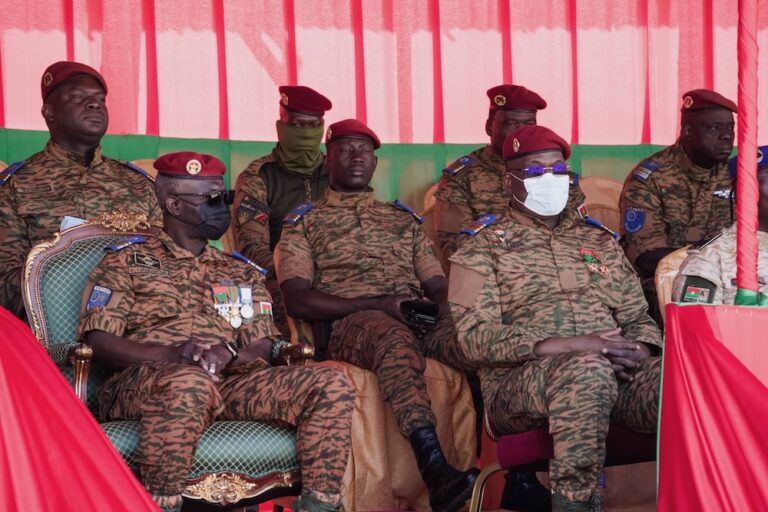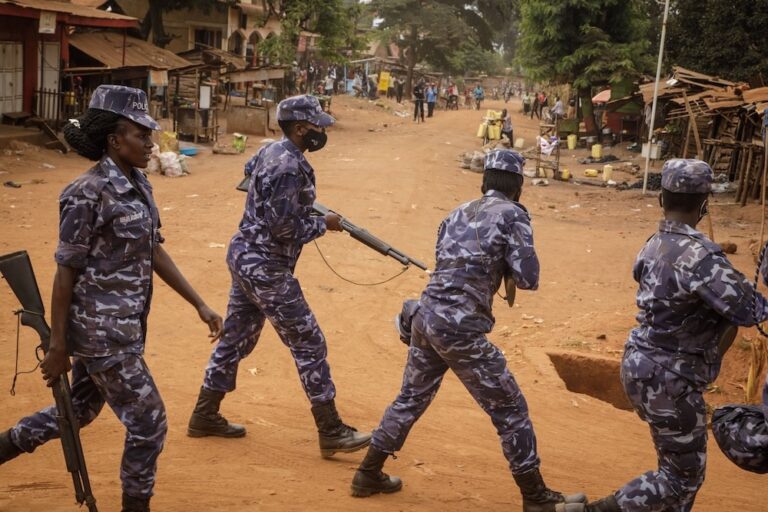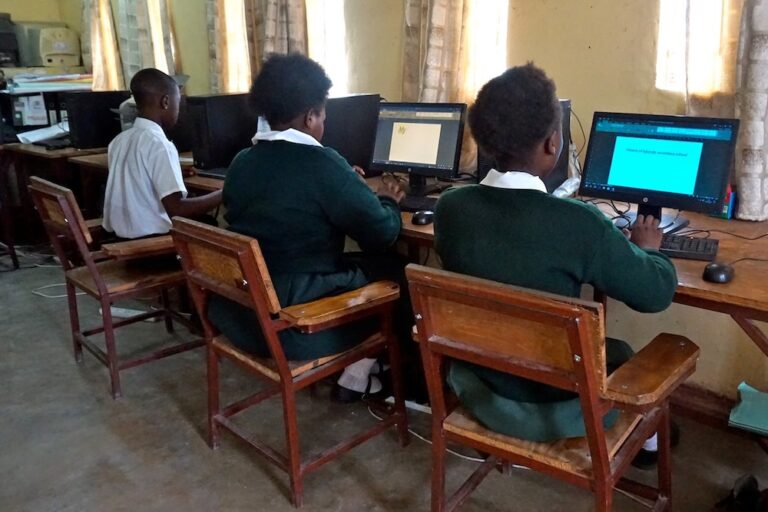November 2021 in Africa: A free expression round up produced by IFEX’s Regional Editor Reyhana Masters, based on IFEX member reports and news from the region. An audio discussion based on this round up is available here.
The groundbreaking decision by Botswana’s Court of Appeals to uphold a 2019 High Court of Botswana ruling that decriminalised same-sex relationships has been hailed as a major victory for gay rights campaigners across the continent. The five sitting judges unanimously agreed: “that criminalising same-sex relationships was a violation of the constitutional rights of LGBTQ+ individuals to dignity, liberty, privacy and equality.”
As reported by AfricaNews: “A win out of the Court of Appeals is an affirmation of the fact that Botswana has indeed moved 20 steps ahead, not only of the former self of Botswana, but ahead of many other parts of the continent that still criminalise consensual adult same sex and same gender activity,” said Ricki Kgositau-Kanza, executive director at Accountability International.
“The widely hailed decision makes the appeals court only the second apex court in Africa to decriminalize same-sex relations. The South Africa Constitutional Court was the first to do so in 1999,” reports The Jurist.
Windhoek+30 principles unanimously adopted
Another historic moment was the unanimous vote by the 193 Member States at the 41st session of the UNESCO General Conference in favour of Namibia’s resolution to adopt the principles contained in the Windhoek+30 Declaration.
The 18 November adoption of the principles, which validate information as a public good, will ensure that support is given to activities that can facilitate the achievement of the goals and objectives contained in this updated version of the Windhoek Declaration.
The UNESCO statement on the adoption states: “UNESCO’s Assistant Director-General for Communication and Information, Mr Tawfik Jelassi, said: ‘As Secretariat, we are committed to carry forward the principles of the Declaration and aware that such an endorsement will have a high value in further mobilizing the widest possible range of stakeholders . . .’”
#IDEI2021: International Day to End Impunity commemorations
November was a hive of activity with IFEX members and other media advocacy organisations marking 2 November – #IDEI2021 – with novel activities aimed at emphasising the safety of journalists, in response to the worrying rise on attacks on media workers and the almost zero prosecution rate in such cases.
The day was commemorated against a backdrop of 11 African journalists and two foreign journalists having been killed on the continent in just 11 months. That number rose to 15 before November had come to a close, with the killing of well-known Somalian journalist Abdiaziz Mohamud Guled in a targeted suicide bombing attack in Mogadishu. During the attack, Sharmarke Mohamed Warsame, director of the government-owned Somali National TV, and driver Abdukadir Abdullahi Nur were also injured.
Urging the authorities to take measures to protect the safety of journalists in Somalia, UNESCO director general Audrey Azoulay said, “I condemn the murder of Abdiaziz Mohamud Guled and urge the authorities to spare no effort in seeking out those responsible for this deadly attack against press freedom and the basic human right of freedom of expression.”
In their moving #LetsTakeAMoment video marking #IDEI2021, the Namibia Media Trust conveyed the harrowing circumstances that media colleagues in Africa work in, as they paid tribute to the journalists killed throughout the year.
Their podcast featured a conversation between Gwen Lister and Fernando Goncalves, veteran editor and the chair of the Mozambican chapter of MISA, and focused on the deaths, disappearances, and growing impunity in the country, while also shining the spotlight on Mozambican journalist Ibraimo Mbaruco, missing since April 2020. MISA Regional also put out a statement on the disappearance of Mbaruco, stating: “The seemingly lackadaisical, if not offhand manner, with which the Mozambican government is handling this serious matter, is disconcerting and raises unnecessary speculation and conspiracies on who was involved in Mbaruco’s disappearance. Throughout the world, it is the State’s responsibility to ensure the safety and security of its citizens, including journalists.”
In Nigeria, Media Rights Agenda (MRA) took the issue of safety of journalists a little further, by filing a suit against the Nigerian government. While citing the unsolved killings of journalists in Nigeria, the MRA is asking the court to hold the government in breach of its regional commitments to protect journalists and investigate violations against them.
On the eve of #IDEI2021, MRA executive director Edetaen Ojo wrote to Abubakar Salami, Nigeria’s Minister of Justice (who doubles as the Attorney General), calling on the state to abide by its international mandate to protect journalists and stop the rampant attacks on journalists and arrest perpetrators attacking the media. Ojo advised the government to create specialist prosecuting teams that could work together with security agents to investigate and solve crimes against journalists.
In South Sudan, the Association for Media Development in South Sudan (AMDISS) joined numerous media advocacy stakeholders in a seminar that included a discussion on ending impunity for crimes against journalists. AMDISS director Michael Duku said South Sudan’s media law was a good step forward, and that it would be good to ensure its effective implementation. Later in the day, police and journalists played a soccer match, as part of an initiative to strengthen the relationship between the two sectors.
In Ghana, the Media Foundation for West Africa (MFWA) and the Alliance for Women in Media Africa (AWMA) facilitated a workshop focused on the safety of female journalists in the country. Some of the women journalists related the traumatic attacks and assaults they have had to overcome, while also touching on sexual harassment, inequality and inequities in newsrooms, as well as out in the field.
Media stakeholders in Sierra Leone concluded their roundtable discussion by signing a memorandum of understanding “to enhance cooperation and mutual understanding in order to promote the safety of journalists.” Commenting on the initiative, Muheeb Saeed, senior programme officer at MFWA, said “the press freedom environment in Sierra Leone has improved significantly in recent times.”
Journaliste en Danger (JED) released their annual report on the state of press freedom in the Democratic Republic of Congo. Launched a day before #IDEI, Bad weather for the press in the DRC includes a detailed compilation of over 110 media violations in the country. In its recommendations, JED is advising the government to decriminalise press offenses, pass access to information legislation, and create an independent regulatory body.
The Media Council of Kenya (MCK) and UNESCO highlighted the link between the lack of investigations into media related attacks and the resulting non-prosecution of perpetrators, and how this allows impunity to thrive. UNESCO Regional Director and representative for Eastern Africa Professor Hubert Gijzen pointed out that journalists were facing increased attacks, especially in digital spaces. “We are extremely worried by the increasing trend of extra judicial killings of journalists. Such impunities have a chilling effect on our democracy. Let us intensify joint action to defend media freedom, ensure safety of journalists, as part of defending our democracies.”
Initiatives throughout the continent tie in with a new resolution on the safety of journalists adopted by consensus at the UN Human Rights Council on 6 October 2020. The resolution was led by a cross-regional core group (Austria, Brazil, France, Greece, Morocco, Qatar, and Tunisia) and co-sponsored by over 70 countries from all regions, signalling strong international commitment to end violence against journalists worldwide.
Lesotho Parliament approves National Media Policy
The National Media Policy adopted by Lesotho’s National Assembly on 29 November was a bright light in what has been a repressively gloomy month for journalists in this tiny mountain kingdom.
The initiative around the national media policy was activated in May 1997 by a group of media personnel passionate about “building a media sector that is professional and ethical.” Following years of on and off lobbying and advocacy efforts, the stakeholders were finally able to get the media committee of the National Reforms Authority to adopt the draft National Media Policy (2021), as well as the draft National Code of Conduct, Behaviour and Practice (2021).
The National Media Policy aims to ease the facilitation of laws by parliament on media, access to and receipt of information, and advertising.
Celebrations and the sense of elation over the adoption of the policy were marred by reports of escalating media violations over the course of the month. On 9 November, veteran journalist Marafaele Mohloboli and her family were attacked by a gang of armed men. Mohloboli’s husband sustained serious injuries during the attack. Just days later, on 14 November, Lebese Molati, from 357FM, was detained and allegedly choked by police after his report on alleged missing guns. The next day, Lesotho Times investigative journalist Mohalenyane Phakela was barred from covering the courts by Chief Justice Sakoane Sakoane, until Phakela’s editor made an apology. On 17 November, the studios and offices of People’s Choice (PCFM) were raided by the police and journalist Teboho Ratalane was questioned about his sources for a story he had reported on.
Lekhetho Makhanya Ntsukunyane, the national director of MISA-Lesotho, pointed out: “a common trend in Lesotho, particularly ahead of every National Assembly election, is for the journalists to be unlawfully arrested, harassed, assaulted and tortured by elements of security agencies and political parties.”
In brief
The Gambia’s Truth, Reconciliation and Reparations Commission (TRRC) submitted its final report to President Adama Barrow. The handover took place two weeks before The Gambia went to the polls to choose a winning candidate from among five presidential contenders “out of a Jammeh era characterised by harsh political crackdowns, fear and financial plunder.”
Nigerian journalist Eti-Inyene Godwin Ekpe, who captured last year’s deadly #EndSARS protests, was forced to flee after receiving death threats over his photographs.
Previously detained by Rwandan authorities for 11 months before he was acquitted, popular YouTuber Dieudonne Niyonsenga was given an arbitrary seven-year prison sentence and a US$4,826 fine on charges of assault, obstructing police officers and practicing journalism without a press card.
The MFWA has described the November detention of award winning Ghanaian radio journalist Nhyiraba Paa Kwesi Simpson, over false publication charges, as disappointing. A caller had claimed that his girlfriend had been kidnapped. When it was found to be a hoax, police proceeded to arrest the caller, who was denied bail alongside Simpson.
If you enjoyed reading this piece, check out our latest edition of Africa Brief, in which IFEX’s Nazarene Njeru & Reyhana Masters end the year on a high note, discussing positive developments on press freedom, LGBTQI+ rights, and the media environment in Lesotho.



